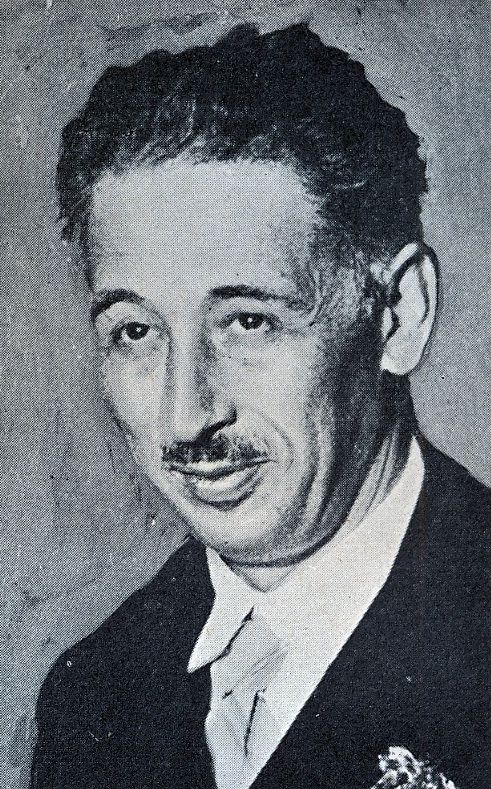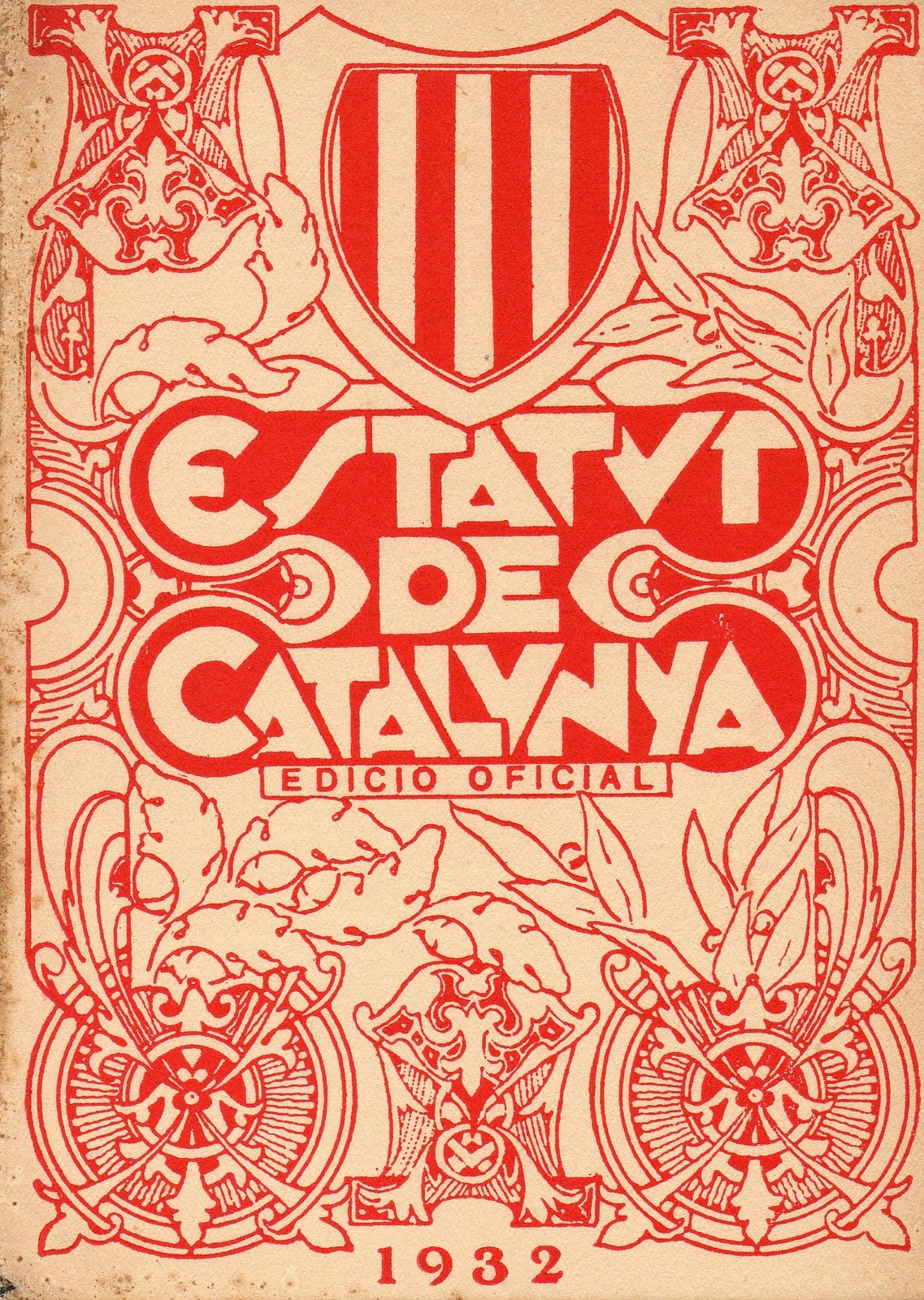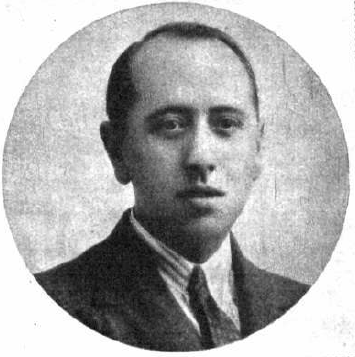|
Domènec Batet
Domènec Batet i Mestres ( es, Domingo Batet Mestres; Tarragona, August 30, 1872 – Burgos, February 18, 1937) was a Spanish military man who became general of the Spanish Army. Starting as a lieutenant, Batet quickly escalated ranks during the Cuban War of Independence. After the Disaster of Annual, as a colonel, Batet took part in the investigation of the defeat taking part in the drafting of the Picasso Files. During the Second Spanish Republic, Domènec Batet was designated chief of the IV Organic Division in Catalonia and crushed the Catalan Uprising of October the 6th. With the outbreak of the Spanish Civil War Batet remained loyal to the Republic and was deployed in Burgos, where his subordinates betrayed him and captured him for the Nationalists. After months of captivity, Franco ordered the execution of Batet. Biography Early military career Domènec Batet i Mestres started his career in the Spanish Army as a volunteer lieutenant in the Cuban War of Independenc ... [...More Info...] [...Related Items...] OR: [Wikipedia] [Google] [Baidu] |
Tarragona
Tarragona (, ; Phoenician: ''Tarqon''; la, Tarraco) is a port city located in northeast Spain on the Costa Daurada by the Mediterranean Sea. Founded before the fifth century BC, it is the capital of the Province of Tarragona, and part of Tarragonès and Catalonia. Geographically, it is bordered on the north by the Province of Barcelona and the Province of Lleida. The city has a population of 201,199 (2014). History Origins One Catalan legend holds that Tarragona was named for ''Tarraho'', eldest son of Tubal in c. 2407 BC; another (derived from Strabo and Megasthenes) attributes the name to ' Tearcon the Ethiopian', a seventh-century BC pharaoh who campaigned in Spain. The real founding date of Tarragona is unknown. The city may have begun as an Iberian town called or , named for the Iberian tribe of the region, the Cossetans, though the identification of Tarragona with Kesse is not certain. William Smith suggests that the city was probably founded by the Phoenicians, w ... [...More Info...] [...Related Items...] OR: [Wikipedia] [Google] [Baidu] |
Rif War
The Rif War () was an armed conflict fought from 1921 to 1926 between Spain (joined by History of France, France in 1924) and the Berbers, Berber tribes of the mountainous Rif region of northern Morocco. Led by Abd el-Krim, the Riffians at first inflicted several defeats on the Spanish forces by using guerrilla tactics and captured European weapons. After France's military intervention against Abd el-Krim's forces and the major landing of Spanish troops at Alhucemas landing, Al Hoceima, considered the first amphibious landing in history to involve the use of tanks and aircraft, Abd el-Krim surrendered and was taken into exile. In July 1909, Spanish workers constructing a rail-bridge providing access to iron mines near Melilla were attacked by Rifian tribesmen. This incident led to the summoning of reinforcements from Spain itself. A series of skirmishes over the following weeks cost the Spanish over a thousand casualties. By September, the Spanish Army had 40,000 troops in n ... [...More Info...] [...Related Items...] OR: [Wikipedia] [Google] [Baidu] |
Catalan State (1934)
The Catalan State ( ca, Estat Català, ) was a short-lived state proclaimed during the events of 6 October 1934 by Lluís Companys as the "Catalan State within the Spanish Federal Republic". Background On 6 October 1934 the President of the Generalitat of Catalonia, Lluís Companys ( ERC), proclaimed the Catalan State within the Spanish Federal Republic. The event was part of a semi-insurrectional program of the left against the new Spanish right-wing republican government led by Alejandro Lerroux, which incorporated as ministers some members of the right-wing CEDA, Spanish political party that at the time was considered close to fascism and, therefore, they feared that it was the first step of this party to take power as Hitler and Mussolini had in Germany and Italy. Proclamation In the afternoon of October 6, Lluís Companys appeared on the balcony of the Generalitat accompanied by his advisers and proclaimed the Catalan Republic. In this solemn hour, in the name of the peo ... [...More Info...] [...Related Items...] OR: [Wikipedia] [Google] [Baidu] |
Revolution Of 1934
The Revolution of 1934, also known as the Revolution of October 1934 or the Revolutionary General Strike of 1934, was a revolutionary strike movement that took place between 5 and 19 October 1934, during the Background of the Spanish Civil War#The "black biennium", black biennium of the Second Spanish Republic. The revolts were triggered by the entry of the conservative Spanish Confederation of the Autonomous Right (CEDA) into the Second Spanish Republic, Spanish government. Most of the events occurred in Catalonia and Asturias and were supported by many Spanish Socialist Workers' Party (PSOE) and General Union of Workers (UGT) members, notably Largo Caballero. Historians have argued that the incident sharpened antagonism between the political political Right and political left, Left in Spain and was part of the reason for the later Spanish Civil War. Prelude The elections held in October 1933 resulted in a centre-right majority. The political party with the most votes was the C ... [...More Info...] [...Related Items...] OR: [Wikipedia] [Google] [Baidu] |
Peasant
A peasant is a pre-industrial agricultural laborer or a farmer with limited land-ownership, especially one living in the Middle Ages under feudalism and paying rent, tax, fees, or services to a landlord. In Europe, three classes of peasants existed: slave, serf, and free tenant. Peasants might hold title to land either in fee simple or by any of several forms of land tenure, among them socage, quit-rent, leasehold, and copyhold. In some contexts, "peasant" has a pejorative meaning, even when referring to farm laborers. As early as in 13th-century Germany, the concept of "peasant" could imply "rustic" as well as "robber", as the English term villain/villein. In 21st-century English, the word "peasant" can mean "an ignorant, rude, or unsophisticated person". The word rose to renewed popularity in the 1940s–1960s as a collective term, often referring to rural populations of developing countries in general, as the "semantic successor to 'native', incorporating all its conde ... [...More Info...] [...Related Items...] OR: [Wikipedia] [Google] [Baidu] |
Statute Of Autonomy Of Catalonia Of 1932
The Statute of Autonomy of Catalonia of 1932, also called the Statute of Núria, was the first implemented statute of autonomy for Catalonia, officially providing self-government to Catalonia for the first time in more than 200 years. The Statute was promoted by the then acting President of the Generalitat, Francesc Macià and approved in a referendum by 99% of Catalan voters. The draft Statute was completed on 20 June 1931 in Núria (Ripollès, Girona) and finally approved in the Spanish Parliament on 9 September 1932. It was implemented until the occupation of Catalonia by the Nationalist Army during the last stages of the Spanish Civil War, in 1939. Historical background The local elections of 12 April 1931 represented good results for leftist and republican parties and the establishment of the Spanish Republic. In Catalonia, the newly formed party Republican Left of Catalonia (Catalan: ''Esquerra Republicana de Catalunya'', ERC), won a landslide victory. This fact led its ... [...More Info...] [...Related Items...] OR: [Wikipedia] [Google] [Baidu] |
Lluís Companys
Lluís Companys i Jover (; 21 June 1882 – 15 October 1940) was a Catalan politician who served as president of Catalonia from 1934 and during the Spanish Civil War. Companys was a lawyer close to labour movement and one of the most prominent leaders of the Republican Left of Catalonia (ERC) political party, founded in 1931. He had a key role in the events of the proclamation and first steps of the Second Spanish Republic. Appointed president of the Generalitat of Catalonia in 1934, after the death of the previous president, Francesc Macià, his government tried to consolidate the recently acquired Catalan self-government and implement a progressive agenda, despite the internal difficulties. In disagreement with the accession of the right-wing party CEDA to the Spanish government in October 1934, he proclaimed a new Catalan State, for which he was imprisoned between 1934 and 1936. He was still in charge of the Catalan Government during the Spanish Civil War, remaining loyal t ... [...More Info...] [...Related Items...] OR: [Wikipedia] [Google] [Baidu] |
1933 Spanish General Election
Elections to Spain's legislature, the Cortes Generales, were held on 19 November 1933 for all 473 seats in the unicameral Cortes of the Second Spanish Republic. Since the previous elections of 1931, a new constitution had been ratified, and the franchise extended to more than six million women. The governing Republican-Socialist coalition had fallen apart, with the Radical Republican Party beginning to support a newly united political right. The right formed an electoral coalition, as was favoured by the new electoral system enacted earlier in the year. The Spanish Socialist Workers' Party (''Partido Socialista Obrero Español'', or PSOE) won only 59 seats. The newly formed Catholic conservative Spanish Confederation of the Autonomous Right (''Confederación Española de Derechas Autónomas'' or CEDA) gained 115 seats and the Radicals 102. The right capitalised on disenchantment with the government among Catholics and other conservatives. CEDA campaigned on reversing the refo ... [...More Info...] [...Related Items...] OR: [Wikipedia] [Google] [Baidu] |
CEDA
The Confederación Española de Derechas Autónomas (, CEDA), was a Spanish political party in the Second Spanish Republic. A Catholic conservative force, it was the political heir to Ángel Herrera Oria's Acción Popular and defined itself in terms of the 'affirmation and defence of the principles of Christian civilization,' translating this theoretical stand into a practical demand for the revision of the republican constitution. The CEDA saw itself as a defensive organisation, formed to protect religion, family, and property. José María Gil-Robles declared his intention to "give Spain a true unity, a new spirit, a totalitarian polity..." and went on to say "Democracy is not an end but a mean to achieve the conquest of the new state. When the time comes, either parliament submits or we will eliminate it." The CEDA held fascist-style rallies, called Gil-Robles "Jefe", the equivalent of Duce, and claimed that the CEDA might lead a "March on Madrid" (similar to the Italian Fasc ... [...More Info...] [...Related Items...] OR: [Wikipedia] [Google] [Baidu] |
Manuel Azaña
Manuel Azaña Díaz (; 10 January 1880 – 3 November 1940) was a Spanish politician who served as Prime Minister of the Second Spanish Republic (1931–1933 and 1936), organizer of the Popular Front in 1935 and the last President of the Republic (1936–1939). He was the most prominent leader of the Republican cause during the Spanish Civil War of 1936–1939. A published author in the 1910s, he stood out in the pro-Allies camp during World War I. He was sharply critical towards the Generation of '98, the reimagination of the Spanish Middle Ages, Imperial Spain and the 20th century yearnings for a praetorian refurbishment of the country. Azaña followed instead the examples of the French Enlightenment and the Third French Republic, and took a political quest for democracy in the 1920s while defending the notion of homeland as the "democratic equality of all citizens towards the law" that made him embrace republicanism. After the Proclamation of the Second Spanish Republic ... [...More Info...] [...Related Items...] OR: [Wikipedia] [Google] [Baidu] |
General Strike
A general strike refers to a strike action in which participants cease all economic activity, such as working, to strengthen the bargaining position of a trade union or achieve a common social or political goal. They are organised by large coalitions of political, social, and labour organizations and may also include rallies, marches, boycotts, civil disobedience, non-payment of taxes, and other forms of direct or indirect action. Additionally, general strikes might exclude care workers, such as teachers, doctors, and nurses. Historically, the term general strike has referred primarily to solidarity action, which is a multi-sector strike that is organised by trade unions who strike together in order to force pressure on employers to begin negotiations or offer more favourable terms to the strikers; though not all strikers may have a material interest in the negotiations, they all have a material interest in maintaining and strengthening the collective efficacy of strikes as a ... [...More Info...] [...Related Items...] OR: [Wikipedia] [Google] [Baidu] |
Catalan Language
Catalan (; autonym: , ), known in the Valencian Community and Carche as ''Valencian'' (autonym: ), is a Western Romance language. It is the official language of Andorra, and an official language of three autonomous communities in eastern Spain: Catalonia, the Valencian Community, and the Balearic Islands. It also has semi-official status in the Italian comune of Alghero. It is also spoken in the Pyrénées-Orientales department of France and in two further areas in eastern Spain: the eastern strip of Aragon and the Carche area in the Region of Murcia. The Catalan-speaking territories are often called the or "Catalan Countries". The language evolved from Vulgar Latin in the Middle Ages around the eastern Pyrenees. Nineteenth-century Spain saw a Catalan literary revival, culminating in the early 1900s. Etymology and pronunciation The word ''Catalan'' is derived from the territorial name of Catalonia, itself of disputed etymology. The main theory suggests that (Latin ... [...More Info...] [...Related Items...] OR: [Wikipedia] [Google] [Baidu] |

_-_Fondo_Car-Kutxa_Fototeka.jpg)





